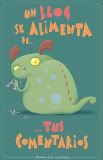Un amigo me envía un artículo del New York Times que... bueno, que juzguen ustedes mismos porque realmente no tiene desperdicio.
An Ailing Town Fears a Proposed Cure Would Be Fatal

PEQUE, Spain — With more mules than cars, no schools and a population almost entirely over the age of 70, this small town in northwestern Spain seems to have few prospects.
Its houses, many made of mud and stone, are largely vacant. Its fields of wheat, corn and potatoes have dried up. Jobs have all but disappeared. The population, near 1,000 a few decades ago, is down to 175, according to the census, and 125, according to residents, who say that, too, may be a stretch.
“The old folks are dying, and there are no children to replace them,” said Fernando Martínez, 56, a bartender who is one of the few working-age adults here.
Another is the mayor, Rafael Lobato, a 42-year-old shepherd who is so unpopular that he has received death threats and set off protest marches by people who do not even live here.
His affront is to have proposed inviting the central government to choose Peque as the site of its next nuclear waste repository, a $900 million project that he says would create hundreds of jobs, expand the tax base, bring in about $15 million a year in financial assistance from Madrid and generally bring the place back to life.
But residents say the 60-acre dump would poison the town with radiation and drive everyone away. After the mayor announced his proposal in early August, they draped their homes, barns and church with black ribbons and banners denouncing it as a death wish.
They have questioned the mayor’s sanity, cursed him on the streets and harassed his family.
“Your son is trying to ruin this town,” a man snapped at the mayor’s aged mother as she stepped outside her home on a recent morning.
While hostility to the mayor’s proposal is palpable, less evident are competing suggestions for addressing the town’s plight.
The Spanish countryside is littered with towns like Peque — several thousand, according to government figures, many with fewer than 50 residents.
Young people deserted these former agricultural towns long ago, lured by work and opportunity in the cities. But industrialization came late enough in Spain that older residents are still around, clinging to places that have almost ceased to function.
Some of the smallest villages lack not only young people but also men, their populations made up almost exclusively of elderly widows clad in black.
The central government, citing environmental concerns and hoping to preserve some indigenous agriculture, says it is preparing a major initiative to revitalize the countryside that will be a cornerstone of its fall legislative agenda. But in Peque, many residents doubt that government help will come.
“No one remembers us out here,” said Mr. Martínez, the bartender. “The government says it wants to protect the countryside, but we don’t see it.”
Residents here are largely cut off from the outside world. Except for summer, when former residents who have migrated to the cities return for vacation, cars are rare here.
If residents want to visit one of the larger towns or cities in the province, they have to travel more than five miles to the nearest bus stop.
“We have no infrastructure,” said Simón Otero, 81, the mayor’s uncle. “The streets need fixing. The pipes are broken. We have no resources, no funds.”
The mayor, who did not respond to requests for an interview, is simply trying to remedy that, Mr. Otero said. But the town has responded by hunting him “like an animal in a game preserve,” Mr. Otero said. In such a tiny town, where the number of last names can seemingly be counted on one hand and where nearly everyone lives within a few hundred yards of one another, public officials enjoy no cushion from their constituents.
And with no police force in town, the mayor’s relatives say they are anxious about the tone of the criticism.
At 9:30 on a recent evening, the mayor’s mother, Odulia Otero, peered from behind her door as she waited for him to come home from tending his sheep. “I worry when he’s late,” she said. “His life has been threatened, you know.”
Relatives say one of the mayor’s cousins was assaulted — slapped and thrown on the ground — recently on her way to visit him while he was working in the hills.
Opposition to the mayor is generally peaceful, but it is fierce enough that he rarely interacts voluntarily with the townspeople these days.
“He will never stop to talk with us,” said Julio Lozano Lobato, 76, a retired bricklayer who is not related to the mayor. “He’s always off in the hills with his sheep.”
The mayor has said he will discuss his proposal at a town hall meeting in mid-September before deciding whether to submit it to the central government formally by the end of the month.
The mayor is required to obtain approval for his proposal from the Town Council, but at least two of its three members are considered his allies, so residents are not counting on a rejection.
The regional government of Castilla y León, however, has warned that it may block construction of the repository if it is clear that an overwhelming majority of Peque’s residents oppose it. For better or for worse, there is a good chance that they will, people here say.
“The last time we had a controversy like this was when my father wanted to bring electricity to town” in the 1950’s, said Concepción Lobato, 58, a cousin of the mayor’s. “The people here don’t like change.”
But the town must do something, she said, or “it will disappear into the desert.”
By RENWICK McLEAN
Published: September 1, 2006
 Hoy comienza Ibértigo. Parece mentira, pero ya vamos por el cuarto año. Pues eso, todos los que estén por esta islita (Gran Canaria) podrán pasarse por el Monopol y CICCA y disfrutar de pelis difíciles de ver de otra manera. Si quieren saber qué se va a poner pueden visitar nuestra página web www.vertigocine.com
Hoy comienza Ibértigo. Parece mentira, pero ya vamos por el cuarto año. Pues eso, todos los que estén por esta islita (Gran Canaria) podrán pasarse por el Monopol y CICCA y disfrutar de pelis difíciles de ver de otra manera. Si quieren saber qué se va a poner pueden visitar nuestra página web www.vertigocine.com




















